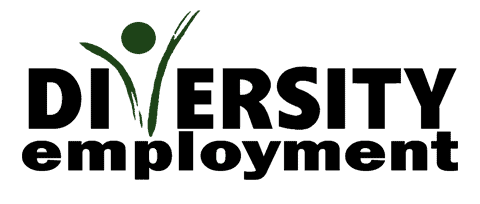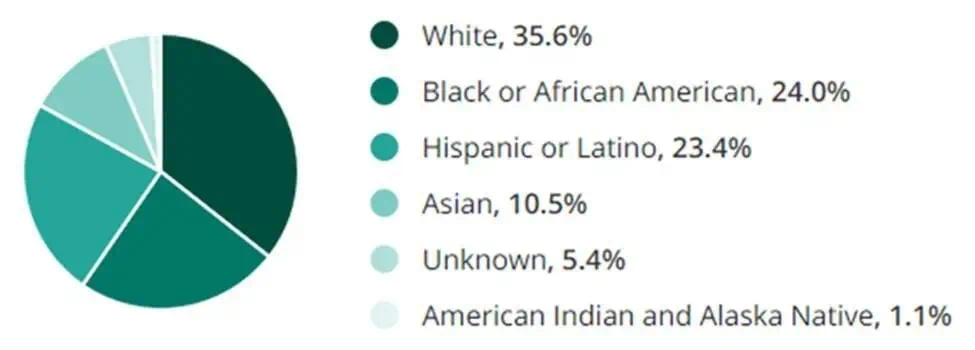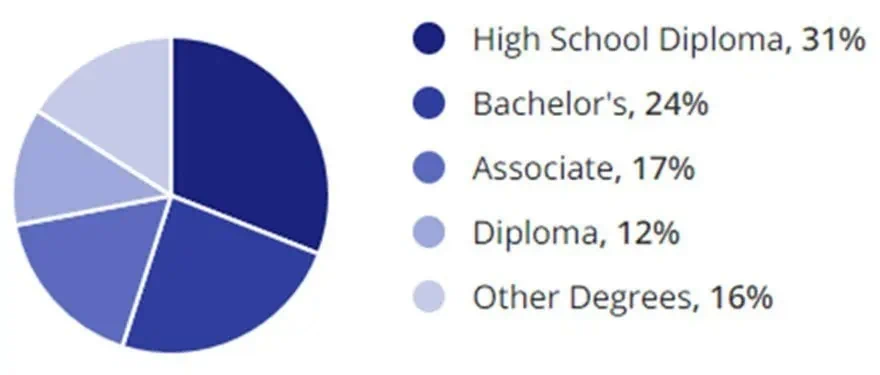Table of Contents
Introduction
Welcome to the ultimate guide for finding your dream job in healthcare. The healthcare industry is a vast and dynamic field that offers a variety of rewarding career paths. From hands-on patient care roles to behind-the-scenes positions in administration and technology, there’s a place for everyone in healthcare. With an aging population and constant technological advancements, the demand for healthcare professionals is growing unprecedentedly, making it a great time to pursue a career in this field.
This guide is designed to help you navigate the complexities of the healthcare job market. Whether you’re a recent graduate exploring healthcare management jobs, a seasoned professional considering a shift to healthcare data analyst jobs, or someone looking to enter the field in an entry-level healthcare job, we have compiled essential information to assist you. Here, you’ll find insights into educational requirements, areas of expertise, current hiring trends, salary expectations, and much more.
The healthcare sector values diversity and inclusivity, recognizing that a workforce with varied backgrounds and perspectives enhances the quality of care. As you embark on this exciting career path, know that you’re stepping into an industry that makes a real difference in people’s lives daily.
Ready to explore the vast opportunities healthcare has to offer? Let’s dive into the details and discover how you can align your skills and passions with a fulfilling healthcare career.
Educational Requirements
Stepping into the diverse world of healthcare jobs begins with the proper educational foundation. Depending on the specific career path, this could range from short certification programs to advanced doctoral degrees. Whether aiming for a role in healthcare management jobs or as a healthcare data analyst, your academic journey is tailored to equip you with the necessary knowledge and skills.
For many frontline healthcare positions, such as nurses and technicians, completing a bachelor’s degree in a relevant medical or science field is the first step. This includes understanding basic health sciences, patient care principles, and, often, hands-on clinical experience.
However, the healthcare industry also offers opportunities for individuals without prior experience. Entry-level positions, like healthcare jobs with no experience, might require only minimal education, such as a high school diploma combined with on-the-job training.
Further, along the spectrum, specialized roles like healthcare analysts or healthcare data analyst jobs demand a more focused educational track. Degrees in health informatics, statistics, or health administration are common among professionals in these areas, highlighting the sector’s interdisciplinary nature.
Moreover, continuous education stands as a pillar in the healthcare field. Given the fast pace of medical advancements and regulatory changes, ongoing learning is not just encouraged—it’s often mandated. Healthcare professionals must keep their knowledge and skills sharp, from certification renewals to advanced degrees.
In essence, the educational paths in healthcare are as varied as the jobs themselves, providing a ladder for advancement that caters to a broad spectrum of interests and skills. With a commitment to learning, anyone can find their fit within the healthcare sector and contribute to the well-being of communities.
Areas of Expertise
The healthcare sector is vast, with a wide array of specializations that cater to every aspect of human health. These areas of expertise define the nature of healthcare jobs and outline the specific skills and knowledge required. Here are some vital areas where professionals can build their careers:
- Primary Care: As the first point of contact, primary care professionals diagnose and treat common health issues and refer patients to specialists when necessary.
- Mental Health Services: This specialization focuses on the diagnosis, treatment, and prevention of mental disorders, playing a crucial role in overall health and well-being.
- Geriatric Care: With a growing aging population, senior care professionals specialize in the unique health needs of elderly patients.
- Healthcare Management and Administration: Behind the scenes, these roles ensure the smooth operation of healthcare facilities and services. Professionals in healthcare management jobs are pivotal in policy, finance, and administrative functions.
- Public Health: Focused on improving health at the community and global level, public health professionals work on disease prevention, education, and policy-making.
- Biomedical Research: Researchers and scientists in this area contribute to medical knowledge and innovation, developing new treatments and technologies.
Additionally, with the advancement of technology, new fields such as telehealth, health informatics, and digital health are emerging, broadening the spectrum of healthcare careers. Each of these areas requires unique skills, whether clinical expertise for direct patient care, analytical prowess for research and data analysis, or managerial competence for administrative roles.
Understanding these areas of expertise is the first step towards identifying where your passion and skills intersect with the needs of the healthcare field. Whether you’re hands-on with patients or behind a computer analyzing data, there’s a place for you in healthcare.
Demographics in the United States
The healthcare industry in the United States is as diverse as the patients it serves. The workforce’s demographics across various factors such as ethnicity/race, gender, and age reflect this diversity, providing a comprehensive understanding of who is behind the healthcare services.
Ethnicity/Race:
The ethnic and racial composition of the healthcare workforce is a mirror of the broader societal shifts toward inclusivity. Key statistics depict a vibrant mosaic of backgrounds, including:
- White: 60%
- Black or African American: 18%
- Hispanic or Latino: 12%
- Asian: 9%
- Other(includes American Indian, Alaska Native, and multiple races): 1%
This diversity is crucial in addressing the varied healthcare needs of a multicultural population, enabling more personalized and culturally sensitive care.
Gender:
Gender distribution within the healthcare sector showcases a predominance of female professionals, particularly in nursing and allied health roles:
- Female: 77%
- Male: 23%
However, there’s a concerted effort across the industry to balance gender representation, especially in leadership and highly specialized fields, to ensure diverse perspectives in decision-making and care delivery.
Age:
Healthcare jobs attract professionals across a wide age range, reflecting the sector’s appeal to both young entrants and experienced practitioners:
- Under 30: 22%
- 30-49: 44%
- 50 and over: 34%
This age diversity enhances the healthcare workforce with a blend of innovation and experience, ensuring a dynamic and adaptable industry capable of meeting the challenges of modern medical care.
The demographics of the U.S. healthcare workforce underscore the industry’s commitment to diversity and inclusivity. By embracing professionals from various backgrounds, ages, and gender orientations, the sector is better positioned to provide care that is reflective of and responsive to the diverse society it serves.
Salary Trends
The healthcare sector is renowned for offering competitive salaries. These financial rewards vary based on specialty, experience, and geographic location. Let’s delve into the current salary trends that shape the healthcare industry.
Entry-level positions in healthcare, such as administrative assistants or primary care providers, typically start with salaries around the $30,000 mark. This provides a gateway for individuals seeking entry-level healthcare jobs, offering them an entry point into the field with room for growth.
Professionals in more specialized roles, including specialized healthcare jobs or those in nursing, can expect significantly higher salaries. On average, these positions may offer salaries ranging from $50,000 to over $100,000 annually. Specialized practitioners, such as physicians and surgeons, stand at the higher end of the salary spectrum, with annual earnings exceeding $200,000.
In management roles, such as those in healthcare administrator jobs, salaries are equally competitive, reflecting the required level of responsibility and expertise. These positions can command annual salaries ranging from $80,000 to upwards of $150,000, depending on the size and scope of the organization.
It’s important to note that geographic location is critical in salary determination. Healthcare professionals in metropolitan areas or regions with a higher cost of living generally command higher salaries compared to their counterparts in rural areas.
With the anticipated growth in the healthcare sector, salary trends are expected to remain favorable. The demand for skilled professionals across various healthcare disciplines is poised to drive salary increases, making careers in healthcare not only fulfilling but also financially rewarding.
Hiring Trends
The healthcare sector is experiencing a transformative phase, with hiring trends reflecting the industry’s response to technological advancements, population demographics, and public health challenges. Here are critical insights into the current hiring trends shaping healthcare careers:
- Increased Demand for Telehealth Professionals: The rise of telemedicine has created a surge in demand for healthcare professionals skilled in delivering virtual care. This trend will continue as patients and providers seek convenient and efficient healthcare solutions.
- Focus on Mental Health Services: There’s a growing recognition of the importance of mental health in overall well-being. Consequently, healthcare facilities are prioritizing the hiring of mental health professionals, from therapists to psychiatric nurses, to meet this increasing demand.
- Need for Data Analysis Experts: The healthcare industry’s reliance on data is growing, with healthcare data analyst jobs particularly in demand. These professionals are crucial in improving patient outcomes and operational efficiencies through data interpretation and analysis.
- Preference for Multidisciplinary Skills: Employers are increasingly looking for candidates with a blend of healthcare knowledge and skills in technology, communication, and management. This multidisciplinary approach enhances patient care and administrative efficiency.
- Expansion of Healthcare Management Roles: With the sector’s growth, there’s an expanding need for skilled professionals in healthcare management jobs. These roles focus on healthcare services’ operational, financial, and strategic planning aspects, ensuring facilities run smoothly and effectively.
Moreover, the healthcare industry is making significant strides in diversifying its workforce. Efforts to increase representation across different demographic factors such as race, gender, and age influence hiring practices, focusing on creating an inclusive and equitable healthcare environment.
The healthcare job market is robust, with a positive outlook for both new entrants and seasoned professionals. The sector offers varied and rewarding career paths, underpinned by a commitment to improving public health and patient care.
Education Levels
Education is the backbone of the healthcare sector, ensuring professionals are well-equipped to handle the complexities of patient care and health management. The range of positions within healthcare reflects varying educational levels required, from high school diplomas to doctoral degrees. Understanding the education levels associated with different healthcare careers can guide individuals toward choosing the right path that aligns with their interests and goals.
High School Diploma or Equivalent
Some entry-level positions in healthcare, particularly those focusing on administrative tasks or primary patient care, may require only a high school diploma or equivalent. These roles offer a starting point for individuals seeking to gain healthcare industry experience.
Associate’s Degree
Positions such as nursing assistants, medical assistants, and some technician roles often require an associate’s degree. These programs, typically two years in length, combine foundational coursework with hands-on training to prepare individuals for patient care responsibilities.
Bachelor’s Degree
A bachelor’s degree is a prerequisite for many professional roles within healthcare, including registered nurses, healthcare data analysts, and health educators. A four-year undergraduate program offers a comprehensive curriculum covering theoretical and practical health sciences.
Master’s Degree
Advanced positions, especially in healthcare management and specialized care, may require a master’s degree. Professionals in these roles benefit from in-depth studies focusing on specific areas, such as healthcare administration, public health, or advanced clinical practices.
Doctoral and Professional Degrees
Highly specialized healthcare professionals require doctoral or professional degrees, including physicians, surgeons, and specific research scientists. These rigorous programs involve extensive coursework, clinical rotations, and, often, significant research contributions.
Continuing Education
Regardless of the initial education level, the healthcare sector emphasizes the importance of lifelong learning. Continuous education opportunities, such as certification courses, workshops, and seminars, allow professionals to stay informed about the latest developments in their field, ensuring high standards of care are maintained.
The healthcare sector offers career opportunities across various education levels, each contributing valuable skills and knowledge. By understanding these requirements, individuals can set a clear educational path toward achieving their career aspirations in healthcare.
Skills in Demand
In the ever-evolving landscape of healthcare, specific skills are increasingly sought after by employers. These skills, from clinical expertise to digital proficiency, are critical in delivering high-quality care and driving innovation within the sector. Here’s a closer look at the skills in demand:
Clinical Proficiency
At the core of healthcare is the ability to deliver effective patient care. This includes a comprehensive understanding of medical procedures, patient assessment techniques, and the implementation of care plans. Clinical proficiency jobs ensure that healthcare professionals respond immediately and accurately to patient needs.
Technological Savvy
With the growing integration of technology in healthcare, professionals with a knack for using and innovating digital health solutions are in high demand. Skills in telehealth, electronic health records (EHR) management, and health informatics are becoming indispensable in modern healthcare settings.
Interpersonal and Communication Skills
The importance of strong interpersonal and communication skills cannot be overstated. Healthcare professionals must effectively communicate with patients, families, and colleagues to ensure comprehensive care. Empathy, active listening, and clear, respectful communication are critical.
Critical Thinking and Problem Solving
Healthcare is a field where decisions often have immediate and significant impacts. Professionals must be able to analyze complex situations, make informed decisions, and solve problems efficiently, often under pressure.
Data Analysis
The ability to interpret and leverage healthcare data is crucial for healthcare analyst jobs. Data analysis skills enable professionals to uncover insights that improve patient outcomes, enhance operational efficiencies, and inform strategic decisions.
Leadership
As healthcare teams become more interdisciplinary and collaborative, the value of leadership skills increases. Professionals who can inspire, manage, and guide teams are essential for ensuring cohesive and effective care delivery.
Adaptability and Continuous Learning
The healthcare sector is marked by rapid technological advancements and changing health landscapes. Professionals who are adaptable, eager to learn, and committed to staying current with new developments are well-positioned to thrive.
The healthcare sector values diverse skills that enable professionals to meet patient care demands and industry innovation. Individuals can enhance their career prospects and contribute significantly to the field by cultivating these skills.
Current & Future Healthcare Jobs Outlook
The healthcare industry stands on the precipice of significant growth, fueled by technological innovations, demographic shifts, and an increasing emphasis on preventative care. The outlook for healthcare jobs is incredibly positive, with numerous opportunities for new entrants and established professionals. Here’s an overview of what to expect in the current and future job market within healthcare:
Robust Job Growth
The U.S. Bureau of Labor Statistics projects that employment in healthcare occupations is expected to grow much faster than the average for all occupations over the next decade. This growth is primarily driven by an aging population and a greater focus on health optimization, leading to increased demand for healthcare services and, by extension, professionals to provide these services.
Expansion in Telehealth and Technology-Driven Roles
The COVID-19 pandemic has underscored the value of telehealth, making it a staple in modern healthcare delivery. As such, careers in telehealth and roles centered around healthcare IT, digital health innovations, and data analysis are expected to see significant expansion.
Heightened Demand for Specialized Skills
As the healthcare landscape evolves, there’s an increasing need for professionals with specialized skills. Areas such as genetic counseling, senior care, and healthcare analytics are remarkably poised for growth, reflecting the sector’s response to emerging health trends and technologies.
Increased Opportunities in Care Coordination and Mental Health Services
The holistic approach to healthcare extends beyond physical well-being, with mental health and care coordination gaining prominence. Professionals skilled in these areas will find many opportunities as the industry seeks to offer comprehensive and integrated care solutions.
A Focus on Diversity and Inclusivity
Recognizing the importance of diverse perspectives and equitable access to healthcare careers, the industry is concerted efforts to diversify its workforce. This includes initiatives to attract and support professionals from various backgrounds, ensuring a healthcare workforce that reflects the population it serves.
The future for healthcare jobs is bright. Emerging specialties, tech integration, and inclusive hiring enrich the sector with growth and impact opportunities. Healthcare’s evolving needs and advancements offer dynamic, fulfilling careers for professionals.
FAQ’s
What is the best way to Start a Career in Healthcare?
Starting a healthcare career begins with obtaining the appropriate education and training for your chosen path. Explore entry-level roles or educational programs that align with your interests. Volunteering or internships in healthcare settings can also provide valuable experience and insights into the field.
Can I Work in Healthcare without a Medical Degree?
Yes, many roles within the healthcare sector do not require a medical degree. Non-clinical roles in administration, data analysis, and tech support greatly contribute to care delivery and innovation.
What Skills Are Most Important for a Successful Healthcare Career?
While specific skills depend on the job, clinical proficiency, technological savvy, critical thinking, and strong communication skills are highly valued across healthcare professions. An attitude of continuous learning and adaptability is also crucial due to the rapidly evolving nature of the field.
How is the Demand for Healthcare Professionals Changing?
The aging population, medical tech advances, and preventive care focus drive healthcare job demand. COVID-19 underscored healthcare’s crucial role, broadening jobs in public, telehealth, and mental health services.
Are Healthcare Jobs Financially Rewarding?
Healthcare jobs are known for offering competitive salaries that reflect the level of education, experience, and specialization required. While earnings vary by position and location, the healthcare sector provides solid financial incentives alongside the intrinsic reward of contributing to community well-being.
What Trends are Shaping the Future of Healthcare Employment?
The healthcare industry is witnessing trends such as technology integration in patient care, expanding remote healthcare services, and a heightened focus on mental health and preventive care. Additionally, there’s a growing emphasis on creating a diverse and inclusive workforce to better serve all communities’ needs.
Staying informed about emerging trends helps individuals prepare for a dynamic, rewarding healthcare career.
Additional Resources
Finding comprehensive and authoritative information is crucial for those looking to start or further their careers in healthcare. Here are some valuable resources to guide you in your journey:
- The Occupational Outlook Handbook by the U.S. Bureau of Labor Statistics offers detailed insights into healthcare occupations, including job descriptions, education requirements, salary data, and employment projections.
- The National Institutes of Health (NIH) provides a wealth of resources on medical research and healthcare careers, especially for those interested in healthcare’s scientific and investigative aspects.
- The American Medical Association (AMA) is a vital resource for medical students and professionals offering educational tools, advocacy information, and guidance on medical ethics and professionalism.
- The American Public Health Association (APHA) offers resources on current public health issues, policy advocacy, and professional development for those interested in public health.
- The American Council on Education (ACE) provides information on higher education accreditation and quality, which is crucial when selecting educational programs for healthcare careers.
These resources can offer invaluable support and information as you explore the diverse opportunities within the healthcare industry. Utilizing authoritative sources ensures you make informed decisions about your education and career path.
Conclusion
The healthcare sector offers diverse and fulfilling career paths, from direct patient care to data analysis and management roles. Technological and demographic shifts boost demand for skilled professionals, ensuring impactful, stable careers. A healthcare career means joining a community dedicated to better health and care quality. We encourage you to join Diversity Employment. Here, you’ll find a supportive environment where diversity is celebrated and opportunities abound for personal and professional growth.












